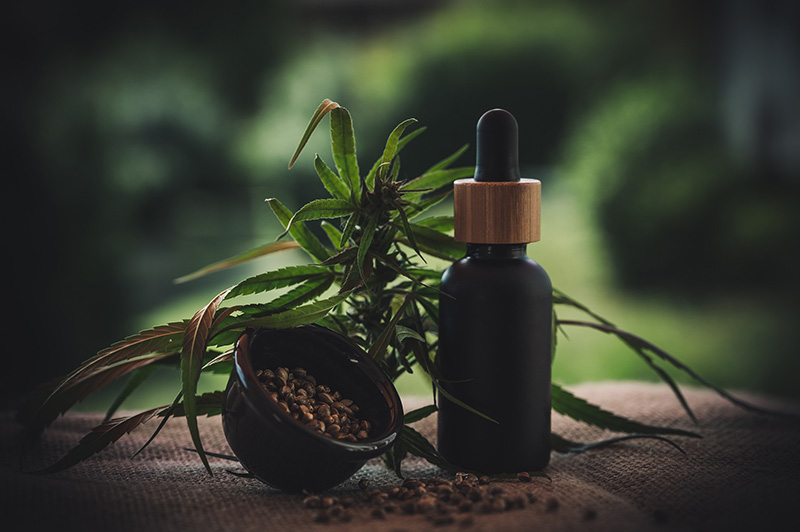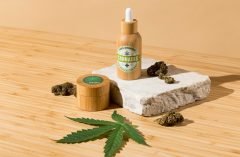Table of Contents [show]
“100% organic!” “99.99% CBD Content!” Sounds familiar? These eye-catching claims on CBD product labels can quickly draw you in and convince you to make a purchase. However, there’s another phrase you should be looking for that might not seem as glamorous, but is arguably more critical: ” lab tested, third-party tested”.
This term, although less flashy, holds a lot of weight in the CBD industry. With the CBD market booming and regulations still catching up, third-party lab testing has emerged as a safeguard for consumers and a testament to a product’s quality and safety.
Have you ever noticed “third-party tested” on your CBD product label and wondered what it means? Or perhaps you’ve never come across it before?
If you’re a CBD user or you’re considering becoming one, it’s a phrase you’ll want to understand. Why, you ask? Let’s delve deeper and discover why third-party testing is a game-changer in the industry!
What Is Third-Party Lab Testing?
Imagine buying a product, say a CBD oil, without knowing what’s in it. Sounds risky, doesn’t it?
Third-party lab testing is a process where a neutral laboratory that offers CBD testing services assesses a product to ensure it meets certain standards of quality, safety, and purity. For our CBD oil, this could mean testing to verify the listed CBD content, checking for harmful substances, and confirming the presence of beneficial compounds.
During the third-party lab testing of a CBD product, four main tests are typically conducted:
Cannabinoid Profile Testing:
This test checks for the different cannabinoids present in the product. Of course, you’d want to know the amount of CBD, but what about other cannabinoids like THC? THC is the compound that gives marijuana its psychoactive effects, and while it’s legal in some places, you’ll want to ensure it’s within the permissible limits in your CBD product.
Terpene Profile Testing:
You’ve probably heard about the aromatic oils that give cannabis its distinct scent, right? Well, those are terpenes, and they do more than just make your CBD product smell good. Some terpenes are believed to work in synergy with cannabinoids to enhance their effects – a phenomenon known as the “entourage effect”.
Lab Testing – Contaminants Testing:
This crucial test looks for any harmful substances that might have found their way into your CBD product. We’re talking heavy metals, pesticides, and even bacteria and fungi. It gives you peace of mind that your CBD product is free from anything you wouldn’t want to consume.
Residual Solvent Testing:
The extraction process used to isolate CBD from the cannabis plant often involves solvents. While these are usually removed, traces might remain in the final product. The residual solvent test ensures that any solvents left over are within safe limits.
Why Is Third-Party Lab Testing Important?
Amid the excitement and potential of the CBD industry, third-party lab testing stands as a pillar of reliability for both producers and consumers. Here’s why this matters:
Quality Assurance and Control:
When you choose a CBD product, you’re not just choosing a wellness supplement; you’re choosing a commitment to your health and wellbeing. Third-party lab testing offers a reassurance that the product you choose meets the highest standards of quality. Whether it’s the CBD content, the presence of other cannabinoids, or the absence of harmful substances, you can have faith in the results because they come from a neutral entity.
Transparency and Avoidance of Bias
Bias can influence results, especially when significant money is on the line. An independent lab has no vested interest in the outcome of the test, ensuring an unbiased review of the product. You get to see what’s in the bottle without the rose-tinted glasses of marketing. This level of transparency builds trust between CBD companies and their customers.
Compliance with Laws, Regulations, and Standards:
The legal landscape for CBD products is complex and evolving. Each state and even some cities may have their own regulations about the sale and use of CBD products. Third-party testing helps ensure that the products meet legal requirements, such as THC levels, reducing the risk of legal complications for both the manufacturer and the consumer.
Verification of Product Potency
You should get what you pay for, right? If a CBD product claims a certain potency or specific cannabinoid profile, third-party lab testing confirms these claims. No more guessing or taking the manufacturer’s word for it.
Health and Wellbeing Implications:
We’ve already mentioned the “entourage effect”, but it bears repeating because of its potential significance. The synergistic interaction of cannabinoids and terpenes could enhance the therapeutic benefits of your CBD product. Isn’t it nice to know that your product has been tested for this?
Competitiveness for Manufacturers:
For CBD manufacturers, third-party testing isn’t just about compliance and customer assurance. It’s also a competitive edge. In an increasingly crowded market, third-party testing can differentiate a brand as one that values quality, transparency, and the wellbeing of its customers.
In a nutshell, third-party lab testing helps ensure the CBD product you’re using or considering is safe, effective, and worth your investment. It’s a vital tool in protecting consumer rights and elevating the standard of products in the CBD industry. So, the next time you come across a CBD product, look for the words “third-party tested”. It’s more than a label; it’s a badge of honor for the product and peace of mind for you.
Further Reading:
CBD Products – 9 Key Considerations When Shopping For Them
Everything You Need to Know About CBD Gummies
How Effective is CBD and What is Mostly Used for?
5 Things You Should Know About Using Prescription-Free CBD Products





